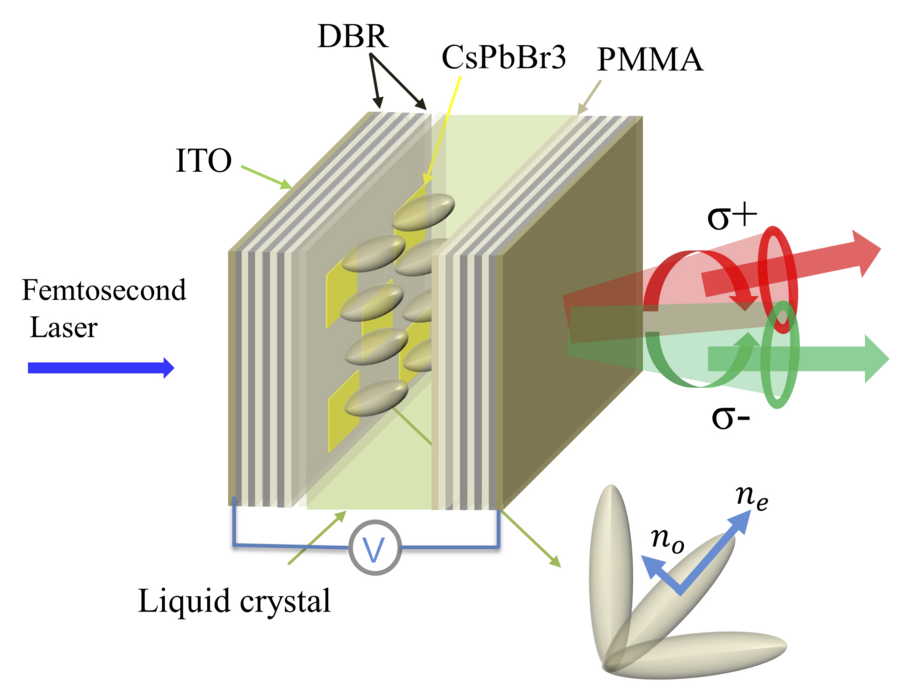To control polariton condensates by using electric fields is a big challenge, since they are electrically neutral quasi-particles. We found that in a liquid-crystal filled microcavity where CsPbBr3 perovskite microplates act as the gain material, an applied electric field can tune the cavity modes by changing the anisotropy of the liquid crystal and further trigger the optical Rashba-Dresselhaus effect, leading to the splitting of the condensed polaritons with opposite spins at room temperature. The original work has been recently published in Nature Communications. See also the UPB press release.

